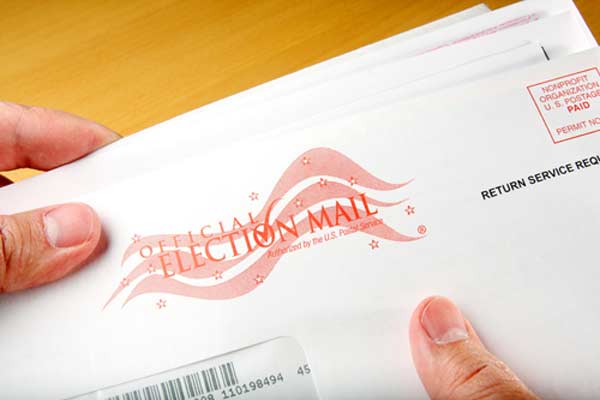Political parties ask court to order state-run PCO elections
 Washington state Democrats and Republicans have gone to court to try to keep the state in the business of running election of party precinct committee officers. The case in Thurston County Superior Court is set for hearing at 9 a.m. on March 23.
Washington state Democrats and Republicans have gone to court to try to keep the state in the business of running election of party precinct committee officers. The case in Thurston County Superior Court is set for hearing at 9 a.m. on March 23.
The parties asked the court on Thursday to set aside new regulations by the Secretary of State’s Elections Division that ends the practice of PCO elections being included on the state Top 2 Primary ballot. The party organizations and their chairmen, Dwight Pelz and Kirby Wilbur, respectively, asked that the state be ordered to continue conducting the PCO elections.
Secretary of State Sam Reed said the lawsuit is surprising, since the parties themselves had a federal judge declare the state’s current PCO election system unconstitutional and the state currently has no constitutionally valid system of running the election.
That development occurred earlier this year as part of the parties’ ongoing effort to overturn the voter-approved Top 2 Primary, which is a nonpartisan winnowing election that allows voters to choose their favorite for each office, with the two biggest vote-getters advancing to the General Election, without regard for party preference.
In Washington, voters do not register by party. The 2012 Top 2 Primary is Aug. 7, with mail ballots going out about three weeks ahead of that date. There are about 6,500 precincts, so potentially 13,000 contests. Many of the slots, though, go unfilled or have only one candidate.
In a letter to the two chairmen earlier this month, Reed noted that both parties asked the U.S. District Court to strike down Washington’s PCO election system as unconstitutional.
Judge John Coughenour concurred:
“Washington’s method of electing precinct committee officers is unconstitutional because it severely burdens the political parties’ ability to identify and associate with members of their respective parties. Precinct committee officers are grassroots representatives of the political parties, yet all voters, regardless of party affiliation, receive the same candidate ballot and have an opportunity to elect those officers. The political parties have a right to object to Washington’s method of determining party affiliation for these officers, and Washington has not shown that its interests in using this system outweigh the First Amendment’s special associational protections (11 JAN 2011, PG 24 Coughenhour Decision).”
Reed wrote the parties:
“You asked the Court to strike down Washington’s PCO election system and the Court agreed.”
In their complaint Thursday, the parties said the state is misreading the court’s ruling.
“The parties most assuredly never sought, much less obtained, a ruling invalidating Precinct Committee Officer elections in their entirety,” the parties said.
They did not describe a preferred system of electing as part of an election that does not provide for a voter to declare a party preference, but repeatedly said the Coughenour decision did not foreclose or invalidate the notion of the state continuing to run the PCO elections for the parties.
Reed noted that lawmakers may create a new PCO election system.
Reed again called on the parties to stop litigating, a costly process for both them and for the taxpayers.
——————
Here are links to the parties’ pleadings in which this is raised:
Democratic Party’s Amended Complaint 1-21-10
Republican Party’s Amended Complaint 1-22-10
Democrats’ Motion for Partial Summary Judgment 8-26-10.pdf
Republicans’ Motion for Summary Judgment 8-26-10.pdf
All of the litigation documents are on our website at: http://www.sos.wa.gov/elections/toptwo.aspx
The rulemaking documents are on our website at: http://www.sos.wa.gov/elections/rulemaking.aspx
We state in WAC 434-230-100:
The method for electing precinct committee officers on party ballots established in chapter 271, Laws of 2004 (the pick-a-party primary), was repealed by chapter 2, Laws of 2005. The method for electing precinct committee officers on a top two primary ballot under chapter 2, Laws of 2005 (the top two primary), was declared unconstitutional by the U.S. District Court for the Western District of Washington in Washington State Republican Party, et al. v. State of Washington, et al., Case No. C05-0927-JCC (January 11, 2011). “The central holding is that the political parties, not the government, are free to define the scope of their membership.” Consequently, precinct committee officer elections are no longer conducted by state or county government. As private organizations, the political parties determine how to conduct their internal affairs, including selection of their officers.